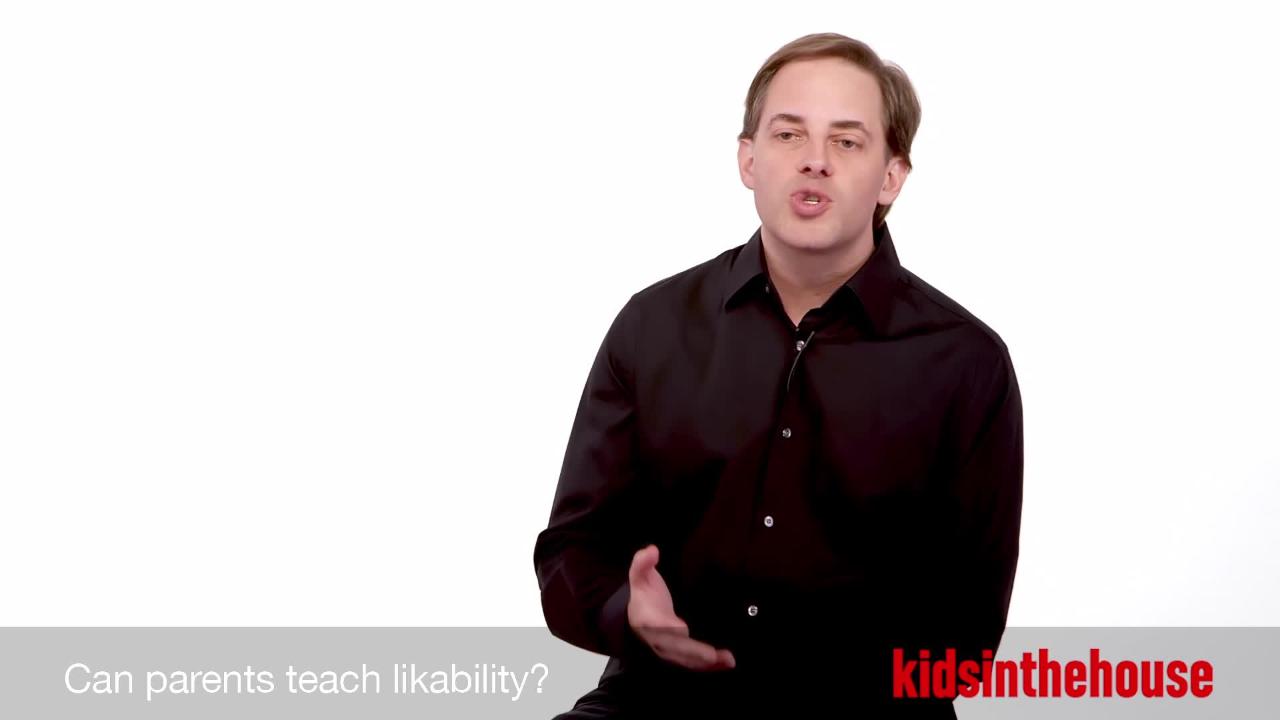Can parents teach likability?
- You know, an interesting study was done that looked at parents and how popular they were and whether their kids grew up to be more or less likable. They were able to divide moms into three groups based on the first memory that they thought of when they thought about their experiences when they were in kindergarten. They had moms who were positive in their memories, and of course, their kids tended to do quite well in terms of likability. They had moms who remembered negative themed memories, experiences, and those kids did not do so well. But there was a third group, and those were moms who felt pretty anxious about the experiences they had when they were young kids. Those moms had kids who did really well, and the reason why anxious moms and positive moms had kids who were so likable was because the researchers found that both moms really paid attention to their kid's likability. They taught them skills about how to care about others, how to introduce themselves to others, and make sure that they were focusing not just on themselves, but on making everyone feel included and welcome. So it is the case that parents can affect their own kid's popularity, but it's important to know that it's not the case that popular moms always have popular kids or unpopular moms have kid who are doomed, not at all. As long as parents are focusing on the best ways to raise kids who are being likable and caring about others.
Parents can affect their own kid's popularity as long as they are focusing on the best ways to raise kids who are being likable and caring about others.
Related Videos
Transcript
Expert Bio
More from Expert
Mitch Prinstein, Ph.D
Professor of Psychology and Neuroscience
Mitch Prinstein, Ph.D. is a husband, a father, board certified in clinical child and adolescent psychology, and serves as the John Van Seters Distinguished Professor of Psychology and Neuroscience, and the Director of Clinical Psychology at the University of North Carolina at Chapel Hill.Mitch’s Peer Relations Lab has been conducting research on popularity and peer relations for almost 20 years, and has been funded by the National Institute of Mental Health, the National Institute of Child and Human Development, and several private foundations, resulting in over 100 scientific works, including a slew of scientific journal articles, book chapters, a set of encyclopedias on adolescent development, and even a textbook on the field of clinical psychology.Mitch is deeply committed to science and training in clinical psychology, having served as President of the Society for a Science of Clinical Psychology and the Society of Clinical Child and Adolescent Psychology, the Editor-in-Chief of the Journal of Clinical Child and Adolescent Psychology, and on the boards of the American Psychological Association, the Council of University Directors of Clinical Psychology, and publication board of the Association of Behavioral and Cognitive Therapies.He and his research have been featured in The New York Times, The Wall Street Journal, National Public Radio, the Los Angeles Times, CNN, U.S. News & World Report, Time magazine, New York magazine, Newsweek, Reuters, Family Circle, Real Simple, and elsewhere.




 GET ACCESS TO ALL PREMIUM CONTENT WITH NO ADS FOR $4.99/MONTH
GET ACCESS TO ALL PREMIUM CONTENT WITH NO ADS FOR $4.99/MONTH
Login or Register to view and post comments